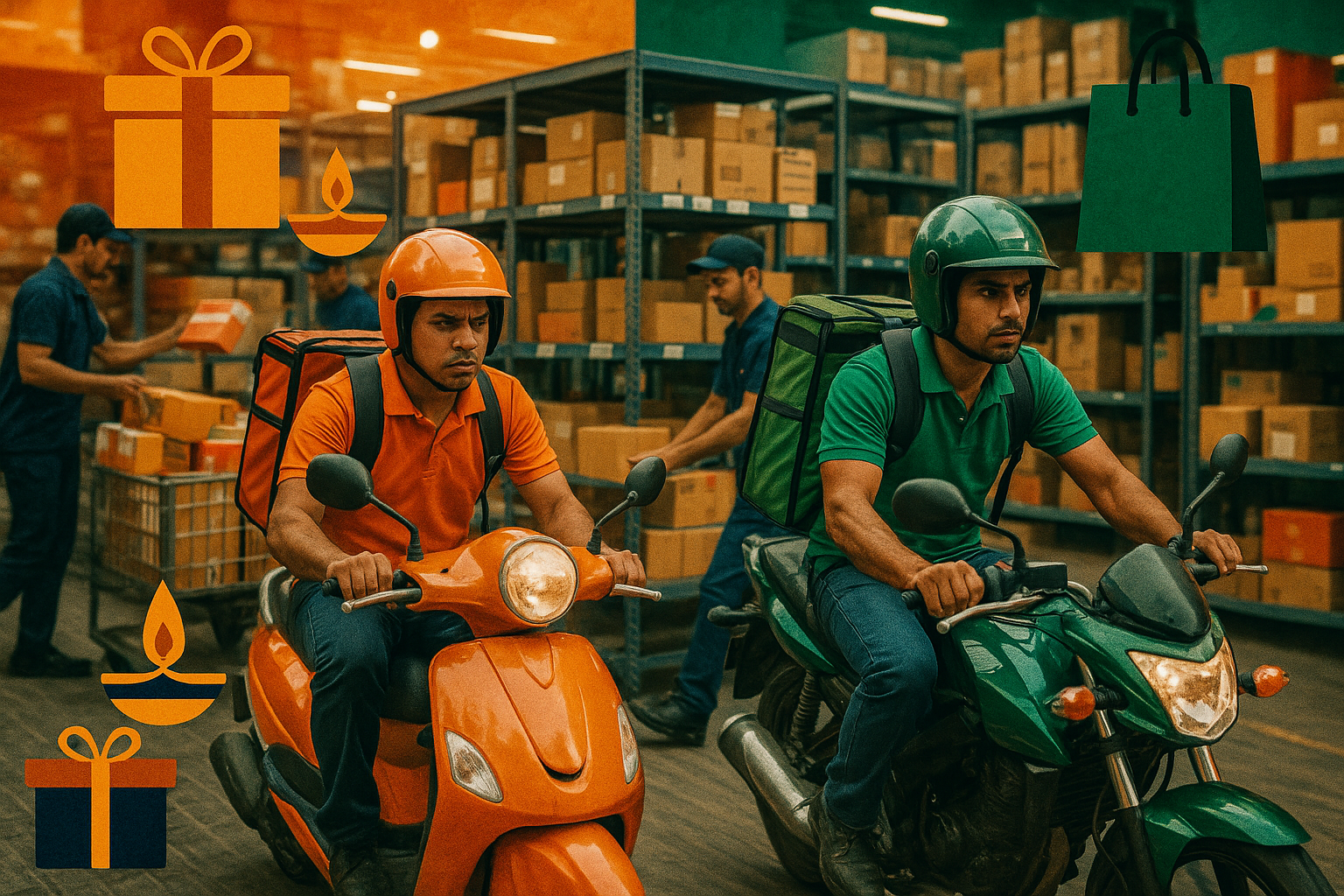India’s festive shopping season is sparking a battle between quick commerce (q-comm) and traditional ecommerce giants. Platforms like Swiggy Instamart, Blinkit, and Zepto are pushing beyond groceries into electronics and gifts, while Amazon and Flipkart are doubling down on their own q-comm services. Analysts expect q-comm to capture nearly 12% of festive ecommerce sales in 2025, as consumer demand peaks around Dussehra, Diwali, and Bhai Dooj.
Core Development
Swiggy Instamart has launched its first large-scale festive campaign, the “Quick India Movement,” a 10-day sale targeting categories like small appliances and premium mobiles. Blinkit and Zepto are focusing on region-specific offers.
Amazon has rolled out 100 dark stores for its q-comm arm Amazon Now, while Flipkart’s Minutes service is aiming for up to 90% pincode coverage across 19 cities. Both traditional giants are blending their ecommerce muscle with quick delivery formats to meet rising consumer expectations.
Key Drivers / Issues
The competition is driven by shifting festive consumption trends.
Consumers want faster delivery of puja essentials, gifts, and festival foods.
Q-comm firms are diversifying beyond groceries into higher-value items.
Revised GST rates and broader catalogues have made premium products viable for q-comm platforms.
Stakeholder Impact
For consumers, the clash means faster service, more choice, and competitive pricing during peak season. Q-comm startups gain an opportunity to strengthen user acquisition and retention. Ecommerce giants face the challenge of integrating quick delivery models without straining supply chains. Investors see festive performance as a critical test of scalability and profitability in India’s retail tech space.
Industry & Policy Reactions
Analysts like Satish Meena (Datum Intelligence) note that q-comm lacks infrastructure for large appliances, so the focus is on smaller electronics and lifestyle goods. Amar Choudhary (1Lattice) highlighted that festive spending typically doubles or triples, with peaks on festival days. Industry experts agree that the battle will redefine how India shops during the most lucrative retail period of the year.
Challenges Ahead
Maintaining profitability amid heavy discounting and fast delivery costs.
Expanding infrastructure without eroding margins.
Balancing consumer expectations with operational sustainability.
Strategic Outlook
Quick commerce is set to expand its footprint during festivals, but ecommerce giants will leverage their scale to remain dominant. The likely outcome is a hybrid retail landscape, where q-comm supplements traditional ecommerce, catering to both instant and planned purchases.
Why This Matters
Festive sales are the backbone of India’s retail calendar. The clash between q-comm and ecommerce giants highlights how delivery speed, convenience, and category expansion are shaping the future of digital commerce in India.












